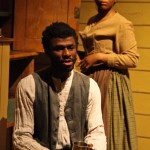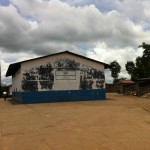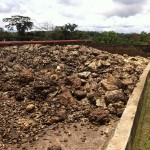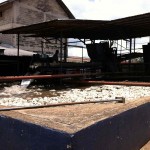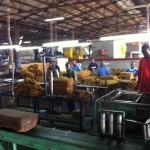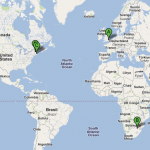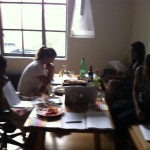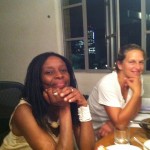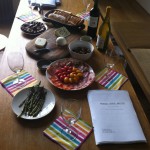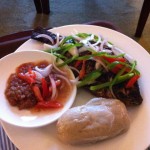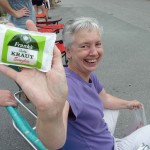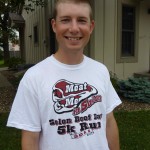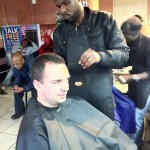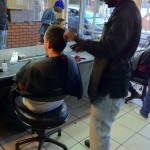Whose Blood is now online:
Breakfast in Johannesbug
I’ve woken up each day this week to work on my world food film with my co-creator Jim. I’m at a fancy hotel in Johannesburg, South Africa, anId he’s some 9,000 miles away in Oakland raising a near one year old, so we connect before work, my time, and before bed, his.
I eat waffles, fresh fruit, and strong tea as we write through drought in Ethiopia, embattled corn harvest in Mexico, grain trading in the USA. These characters, whom I know better than most of my friends, and Jim’s voice threaded through the computer surround me alone, perched in my Johannesburg hotel room.
Rubber in Liberia
I’ve spent the last couple weeks traveling around Liberia visiting rubber plantations and mine sites, talking with people about how these businesses can better benefit local citizens. I like the technical discussions the best: the cost of replanting a plantation slaughter tapped during the war, the tonnage of various trucks to transport, the process for cleaning and packing rubber. This plant is run by a lovely Congolese woman who when I break into speaking french with her, invites me to her party. Sometimes I marvel at home blessed I am to drop into all of these various worlds.
The peacocks have grown restless this evening
maybe they sense the coming rain.
Whose Blood Featured by A.R.T./Harvardwood
Whose Blood was recently highlighted in a write up by A.R.T/Harvwardwood Alumni Lab Grants Fund. The A.R.T. Fund were one of the first people to support the production in its development stages in early 2010.
Whose Blood Revived: 6 October, 2011 16:00
Whose Blood is being revived for an encore performance sponsored by the National Health Service. Performance 6 October, 16:00 at The Broadway, Barking
Afridiziak Review ★★★★ “an experience that leaves a lasting and memorable presence”
World Food Movie Take 6
Another amazing evening, with readers of the World Food Movie calling in from three continents. Filled today with thoughts and inspiration on how to keep in developing. Here was the London contingent.
Waylaid in Kumasi
On my way back from the mine in Obuasi, Ghana to Accra and then to Johannesburg. Flights cancelled and so I hole up in a hotel to work, rest, and sleep. One of the benefits is that they serve Banku, my favorite Ghanaian dish made with pounded fermented corn and cassava. Banku with Tilapia, Banku with light soup . . . I could stay here for awhile.
Solon Beef Days
Been working on a film about the global struggle for food. The film takes us from the corn fields of Iowa, to Presidential palaces in Ethiopia, to rancheros hiding out in Mexico city. The opening credits roll over shots of Solon Beef Days, an annual festival in a small Iowa town where my aunt and uncle and their family still live. The parade is actually happening today while I am 6,000 miles away at a gold mine in Ghana eating mashed cassava and running projections for millions of dollars of new community projects. Sometime I wonder at the strangeness of how a boy from Massachusetts ended of advising African governments and companies, but today its the Solon main street parade that seems oddest of all.
Back to my old haunts
Back in South Africa after two years. Back with old friends in old haunts. Like I never left and like I’ve never been here before.


